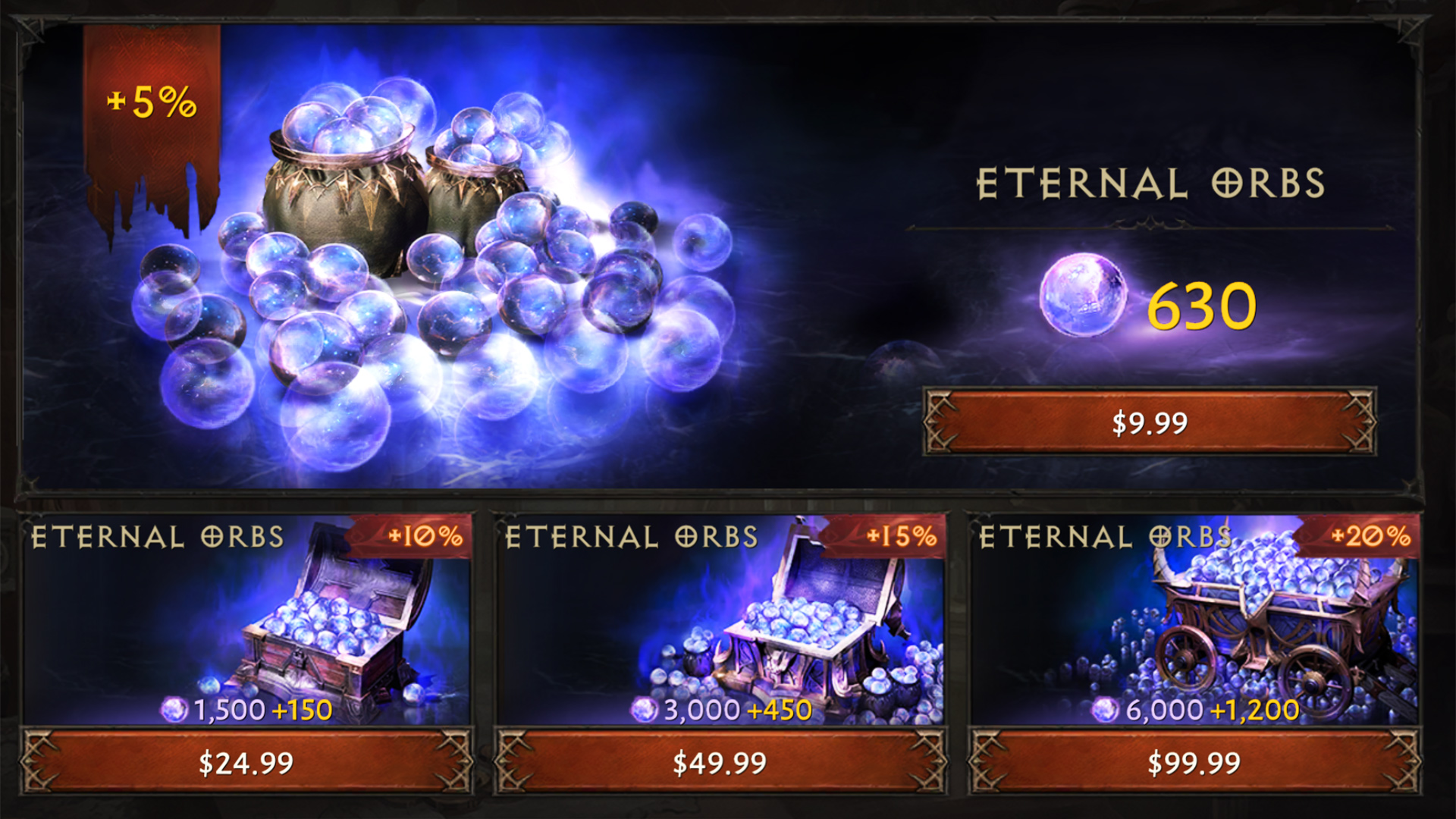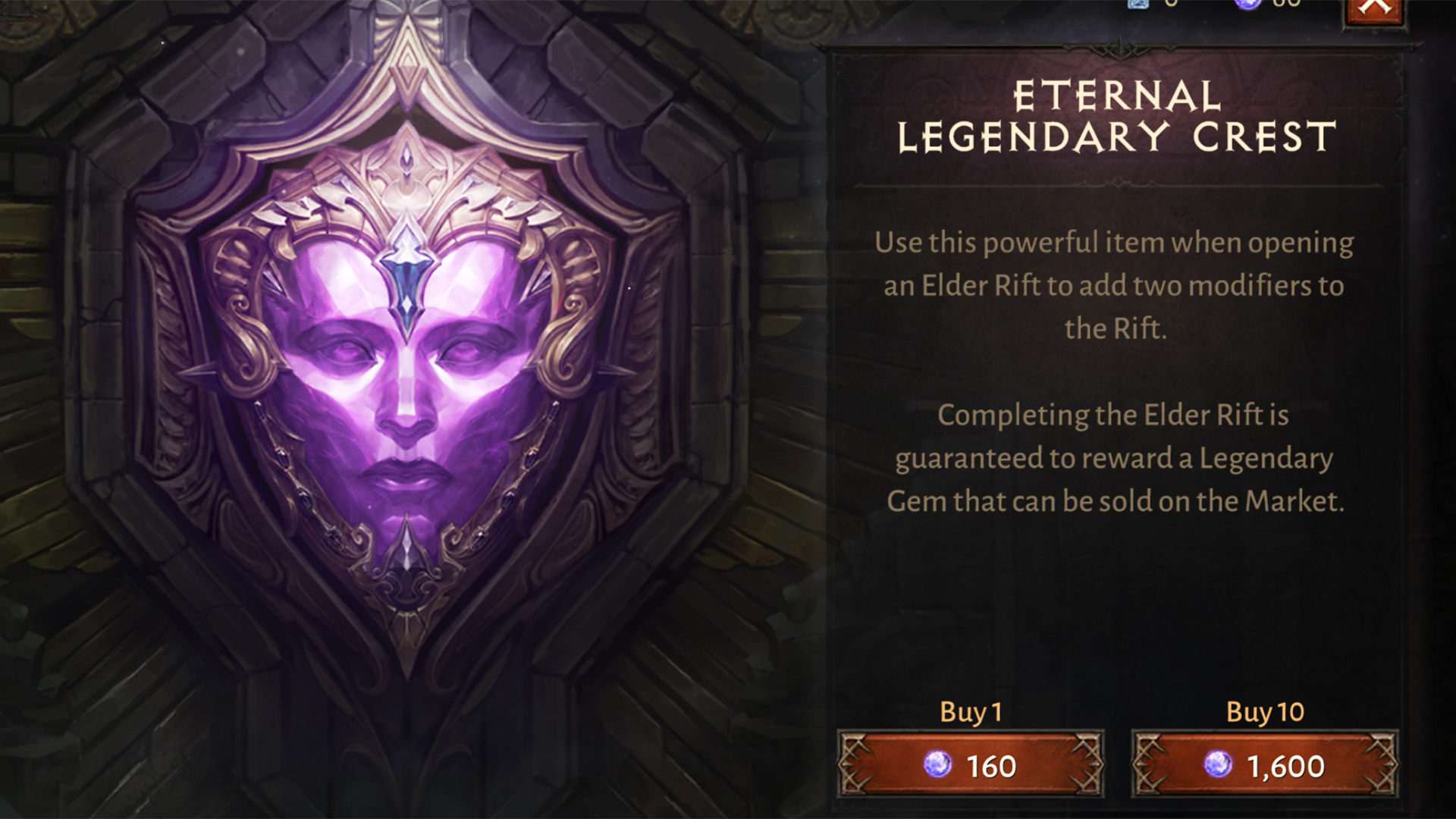Diablo Immortal isn't quite pay-to-win, but it's close
The nature of Diablo Immortal's microtransactions isn't immediately apparent, but the red flags are big with this one.

If you're looking to pop demons and pick up some loot in Diablo Immortal for more than a few hours, you'll probably have to pay. NetEase and Blizzard's mobile-first and now PC-ported Diablo game is built to obfuscate how real money transactions can influence your character's strength, but the most dedicated players are probably going come to their conclusions soon, and it doesn't seem like they'll be positive.
In my limited experience with Diablo Immortal today, plus reports from the game's beta, it appears designed to monetize the grind that is at the heart of loot-based games. That's not unique for free-to-play games, but it's the first time Blizzard's popular series could prioritize your wallet over your time.
Diablo Immortal won't immediately launch in Belgium or the Netherlands because of their laws against loot boxes. They aren't literal boxes; they're rifts. Like in Diablo 3, Diablo Immortal has rifts, or portals that send you to randomized dungeons filled with tough enemies and rare rewards. A critical part of the Diablo series has always taken place after hitting max level, where you fight harder and harder monsters for increasingly better gear. That's why people still play the original games to this day—it's sort of the point. Diablo Immortal is the same, except now you can pay money to increase your chances to get powerful items, specifically out of its rifts.

Crests are items that modify rifts to increase (or guarantee, with Legendary Crests) the percentage chance of receiving rare gems to slot into your gear, which give you strong passive effects and stats to help you in the endgame PvP and PvE activities. You can purchase Crests with Eternal Orbs, a currency that you can only get with real money, or you can earn them through the battle pass. Essentially, Diablo Immortal's rifts are loot boxes that require you to kill some enemies for before you get your random rewards, and Crests are a way to pay for higher tier loot boxes that are more likely to drop the best rewards.
The best gems, which are broken into star-ratings like Genshin characters, are largely available from rifts. They're sprinkled in both the free and paid battle passes and you can get some via NPCs and the game's real money auction house (yeah, it's back), but if you need several to slot into your high level gear, you'll either need to grind rifts with extremely low drop rates or lay down some cash for Crests.
Gear acquisition isn't tied to money, but making the best endgame gear better sort of is. You can upgrade the stats and abilities on your armor and weapons through the blacksmith using scrap materials. For legendary and set gear, however, you also need Glowing Shards. You get Glowing Shards by breaking down legendary gear which is primarily acquired via the auction house or being very lucky with drops.
Once you have that upgraded legendary gear, you can use Reforge Stones to re-roll their stats and effects. Reforge Stones are, you guessed it, easily obtained by trading in Eternal Orbs. You can also get them via rifts, battle pass rewards, and daily and weekly quests, but those all take much longer. If past Diablo games are any indication, you'll probably want a fair amount of Reforge Stones while you work out your character build and pick up new gear.
Keep up to date with the most important stories and the best deals, as picked by the PC Gamer team.
Can confirm that Diablo Immortal is indeed a mobile game pic.twitter.com/ZkSoiAVaFDJune 1, 2022
All of Diablo Immortal's microtransactions (expertly explained here) touch on the aspects of the series that used to be all about how you use your time and the risk/reward of attempting higher level dungeons. Those concepts are still intact in the new game, but the rate at which you normally receive upgrades and upgrade materials could be skewed toward getting you to pay up. Reports from players on the subreddit and on YouTube suggest that was definitely the case in the beta.
Speaking to GameSpot, the game's senior game designer Scott Burgess denied any form of pay-to-win mechanics in the game, claiming that they made it to the beta's highest PvP ranks without spending anything:
"Going back, I played the beta without spending a dollar. There were a few of us on the team that did that because we wanted to see what the experience was like. And I will say that I was in a top Dark House in the Shadows, I kept up with World Paragon, I was competitive in PvP, I would often get the MVP ranking. So we're doing things to make sure the game is fun for everyone. Anytime we have a purchase, we want to make sure it's a good value. That's kind of the goal we have on that side."
Even if that's true and continues to be possible in the complete game, the pile of real money systems in Diablo Immortal, which tilt the odds of exciting random drops, at least present the risk of turning predatory, if they aren't already. It might take some time to recognize how much these microtransactions matter as players make their way to the endgame, but it's a real possibility that they'll feel like they're required once you've sunk enough hours into the game. Genshin Impact is huge and legitimately fun to play, but its gacha systems are built to exploit the most dedicated players, and Diablo Immortal could be more of the same.
Tyler has covered videogames and PC hardware for 15 years. He regularly spends time playing and reporting on games like Diablo 4, Elden Ring, Overwatch 2, and Final Fantasy 14. While his specialty is in action RPGs and MMOs, he's driven to cover all sorts of games whether they're broken, beautiful, or bizarre.

